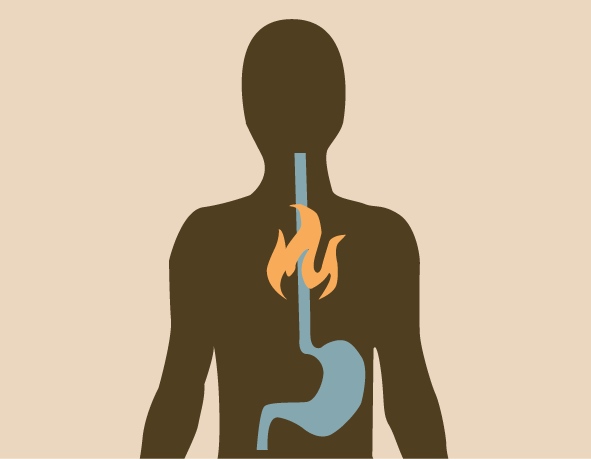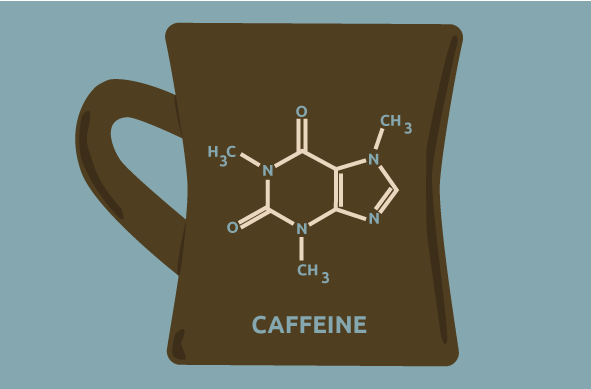
3 Ways to Avoid Heartburn with Coffee
Introductions
All too often, I hear people say “I can’t drink coffee because it gives me heartburn!” Yes, acid reflux is a real problem that many people experience after drinking coffee. However, not all coffee is created equal! Many people associate their heartburn problem with coffee as a whole, not realizing that there are very specific reasons that a particular brand of coffee causes it.
In fact, by following these three criteria, it’s quite possible to drink coffee and be worry-free about heartburn and acid reflux.
1. Get the right amount of caffeine
A big player in the cause of acid reflux is overcaffeination. When your caffeine intake is too high, the muscle that connects the stomach to the esophagus is relaxed.1 When this happens, an opening is created for stomach acid to come up into your esophagus, which causes acid reflux. Ew! That’s pretty gross.

So how do we make sure we have a safe amount of caffeine? Most experts agree 600mg per day(4-7 cups) is overcaffeination.2 For some such as pregnant mothers it’s advised to be 200mg(about 2 cups).3 According to Health Canada — the federal health department in Canada — 400mg (just over 4 cups) is a safe daily caffeine consumption rate.
By making sure the coffee you drink has safe caffeine levels, you can prevent acid reflux and enjoy your nice hot cup of coffee without the dreaded consequence of heartburn. Keep reading to learn the best ways to avoid hyper-caffeinated coffee.
2. Only Drink Shade-Grown Coffee
Did you know there is a difference between Shade-Grown coffee and Sun-Grown coffee? It’s not surprising if you don’t – it’s not something you hear a lot about. Why? Because Sun-Grown coffee is poorer quality, and much cheaper to produce!

Many grocery-store coffee blends use sun-grown beans to reduce costs. But, coffee isn’t supposed to grow in direct sunlight. By being exposed to the strong rays of the sun, it grows faster — hence being much cheaper — but it then contains more acidity, and a higher caffeine content. When coffee is grown in the shade, it develops at a slower, healthier pace. It develops lower caffeine content, and lower acidity giving you a much smoother cup of coffee.
Because they are low in caffeine and acidity, Shade-Grown beans are much less likely to cause problems with acid reflux. You should always look for coffee that is labeled as Shade-Grown, to ensure you’re getting the smoothest cup without the jitters.
3. Only Drink 100% Arabica Coffee
In addition to drinking shade-grown coffee, you should also consider only drinking 100% Arabica beans. So what’s the difference between Arabica and regular coffee? Well, there are two types of coffee beans: Arabica and Robusta. (Again, it’s not surprising that you may not know this, because it isn’t advertised by the masses.) Robusta beans are cheaper because they grow at lower altitudes, and they’re more hardy making them resilient to pests. But, the tradeoff is Robusta beans are more bitter and contain twice the caffeine content of Arabica beans.
What does this have to do with acid reflux? The extra caffeine in Robusta beans makes you more susceptible to acid reflux and heartburn.

So what’s the solution? Drink 100% Arabica coffee – you’ll taste and feel the difference, and won’t ever want to go back to Robusta beans.
Conclusion
Many people give up coffee because of acid reflux and heartburn. But you don’t have to! Just remember to avoid hyper-caffenation by only drinking 100% Arabica, Shade-Grown coffee.
And if you don’t believe me, check out these testimonials from our customers below. They’ve discovered that Shade-Grown and Arabica beans are the solution to their struggles with heartburn. Try our 100% Arabica and Shade Grown coffee and see if it works for you. You’ll be glad you did!
Sources
1. http://www.npr.org/blogs/thesalt/2012/08/13/158097387/got-heartburn-maybe-you-should-rethink-your-drink
2.http://www.fda.gov/downloads/UCM200805.pdf
3.March of Dimes (2012) Caffiene in Pregnancy http://www.marchofdimes.com/pregnancy/caffeine-in-pregnancy.aspx
4.Health Canada. (2013) Health Canada Reminds Canadians to Manage Their Caffeine Consumptionhttp://healthycanadians.gc.ca/recall-alert-rappel-avis/hc-sc/2013/34021a-eng.php
